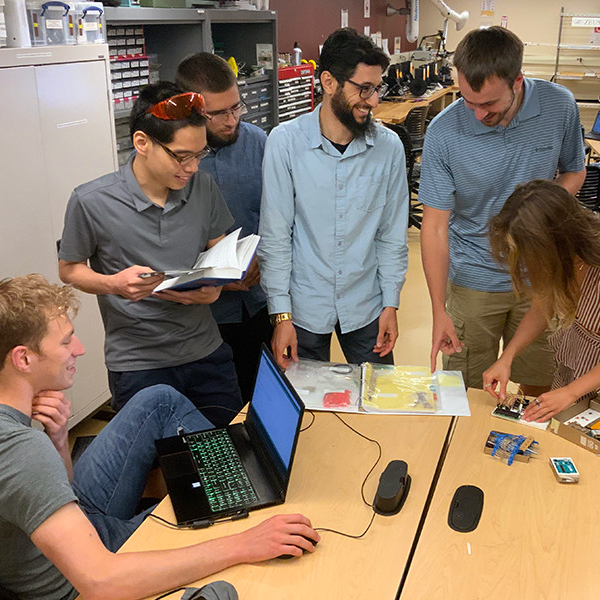University launches Center for Medical Device Cybersecurity

Center is founded and funded in large part by five U.S. leading health industry companies
The University of Minnesota is proud to announce its new Center for Medical Device Cybersecurity (CMDC). The center will foster university-industry-government collaborations to ensure that medical devices are both safe and secure from the growing number of cybersecurity threats.
The CMDC was formed in response to a request from members of the medical device manufacturing industry to form a collaborative hub for discovery, outreach and workforce training in the emerging device security field. Enhancing the State of Minnesota’s strong legacy in medical devices, the center will focus on developing new research, technologies, education and training to address potential cybersecurity threats.
The new center builds on expertise from institutes and centers across the University in both the medical device and cybersecurity space. It also channels the talents of its faculty, staff and students to address this important industry challenge. Collaborators include the University of Minnesota College of Science and Engineering (including the Department of Computer Science & Engineering), the Earl E. Bakken Medical Devices Center, the Technological Leadership Institute, and the Office of the Vice President for Research.
"Cultivating innovative and transformational partnerships, like the CMDC, is a core focus of MPact 2025, our new systemwide strategic plan,” said University of Minnesota President Joan Gabel. “I'm excited about how this new innovative center will enhance the security of our state's thriving medtech sector and beyond."
The CMDC will be housed within the Technological Leadership Institute (TLI), an interdisciplinary center within the College of Science and Engineering with a mission of developing local and global leaders for technology-intensive industries.
“TLI is excited to be home to the CMDC and provide training opportunities in the area of medical device cybersecurity. The center aligns perfectly with our mission and merges the expertise within our Medical Device Innovation and Security Technologies masters programs,” said TLI director Allison Hubel. “While manufacturers can ensure a high-level of safety through testing, the security of connected-devices remains a growing and moving target, making this collaboration and the work of the CMDC critical to the industry and all those it serves.”
The CMDC is founded and funded in large part by five U.S. leading health industry companies. These include Boston Scientific, Smiths Medical, Optum, Medtronic, and Abbott Laboratories. Industry members are invited to take part in the CMDC Steering Committee and additional members will be actively recruited over the next two years.
“Cybersecurity for medical devices is critical in retaining the trust consumers place in health care companies for how the technology is used, and how health information is protected,” said Allison Miller, chief information security officer for Optum. “By partnering with academic organizations, industry experts, and our peers we can help formulate policies, regulatory proposals and state-of-the-art testing so that we not only support the long-term success of secure medical devices, but also protect the patients who rely on medical devices for their care therapies.”
The center is currently led by interim director Katey Pelican of the University of Minnesota Strategic Partnerships and Research Collaborative (SPARC).
“We are ecstatic to work closely with the medical device manufacturers and health care delivery industries to help fuel innovation and discovery in this space,” said Pelican. “Through the establishment of the Center for Medical Device Cybersecurity, the University is poised to develop future workforce leaders and conduct cutting-edge research that will elevate the entire industry in this vitally important and expanding space.”
As part of its inaugural year, the center is hosting roundtables and a hackathon, organizing networking and training opportunities, establishing a medical device cybersecurity short course that TLI is launching this fall and developing a medical device cybersecurity summer internship program.
More information about the CMDC including upcoming events and industry membership details can be found on the Center for Medical Device Cybersecurity website.